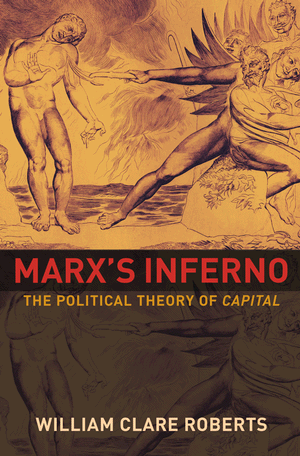(Actually, my favorite bit of this "essay" is the inset photo of Marx, the caption of which informs us that:
German philosopher Karl Marx, author of "The Communist Manifesto," advocated redistributing wealth in order to achieve a classless society. (AP Photo)I think it's actually the "(AP Photo)" that gets me. Like there's some AP stringer somewhere who caught Marx on camera.)
Nonetheless, there are slightly less fantastical grounds for thinking that an Obama administration would be better for workers than a McCain administration. One of which is Obama's support of card-check legislation.
Right now, if workers want to organize a union at their workplace, they have to go through two steps: 1) a card campaign, in which they get at least a majority of their fellow workers to sign cards indicating that they want a vote on whether to have a union; and 2) a secret-ballot vote, ordered by the labor relations board, which is an up-or-down vote on whether to accept union organization. Card-check legislation would do away with the second step.
Today the Wall Street Journal, that bastion of pro-worker sentiment, farmed out its editorial page to a scribe from the National Right to Work (for Peanuts) Committee, who decries the more-likely-than-ever card-check era by claiming that unions prolonged the last depression, and if we get card-check, by gum, they'll prolong this next one, too! The argument is that the Wagner Act (that great bugbear of all who want the right--the RIGHT, I say!--to work for peanuts) caused the recession of 1937. Whatever. My favorite paragraph:
Given the reality of unions in the workplace, the law meant that efficiency and profitability were compromised, by forcing employers to equally reward their most productive and least productive employees. Therefore subsequent wage increases for some workers led to widespread job losses.Yeah, and Mussolini made the trains run on time. I like the notion that in modern large-scale industries, the employers know who their most and least productive workers are, and that weeding out the lazy ones is teh key to profitability and efficiency. The boss, he just like Santa Claus! As Edmond Burke observed a long, long time ago ("Thoughts and Details on Scarcity"):
Unquestionably, there is a good deal of difference between the value of one man’s labour and that of another from strength, dexterity, and honest application. But I am quite sure, from my best observation, that any given five men will, in their total, afford a proportion of labour equal to any other five within the periods of life I have stated; that is, that among such five men there will be one possessing all the qualifications of a good workman, one bad, and the other three middling, and approximating to the first, and the last. So that in so small a platoon as that of even five, you will find the full complement of all that five men can earn.Anyway, it's unsurprising to find that NRO is riding the same hobby-horse today. They do it with a thought experiment: imagine that Joe the plumber is a hard-working, ill-informed, anti-union, friendless schlub; as such, he might get press-ganged into a union without even knowing it! Why, it's fasco-communist! My favorite bit:
The Union leaders are pretty sophisticated at organizing. After all, it's what they do. Pretty quickly they identify both the employees most receptive to unionization as well as those most opposed. Joe falls into the latter group so the Union never even attempts to get him to sign a card. In fact, since most of the pro-union employees work a different shift, Joe's not even aware a union drive is going on. The Union gets 51 employees to sign cards and gets certified by the NLRB as the collective bargaining representative for all employees — including Joe, who had absolutely no say in whether he wanted a union.Obviously Peter Kirsanow (one of the B-listers, apparently) has never been in a union, or he never would have written those first two sentences. My question for Peter: Did Joe have a say in whether or not he was such an unbelievable ass?
I have no doubt that card-check will change the terrain quite a bit for unions. These changes will not all be in the direction of making unionization easier, either. Tactics on the other side will change to reflect the new regime, and I would guess there will be an increase in militancy on both sides. I for one, will welcome our new soviet overlords!
